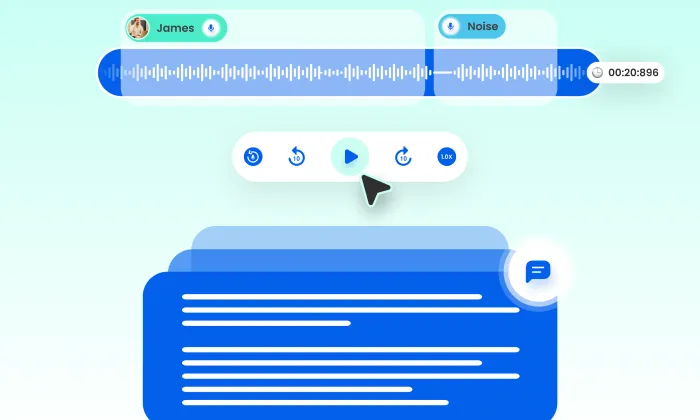What legal or copyright considerations apply to TTS datasets?
TTS
Legal Compliance
Speech AI
Navigating the legal landscape for Text-to-Speech (TTS) datasets is crucial for AI development. This involves understanding copyright laws, licensing agreements, and ethical data practices to ensure compliance and protect your organization.
Copyright Basics for TTS Datasets
When working with TTS datasets, it's vital to address copyright concerns for both scripts and audio recordings. Here’s how each element comes into play:
- Scripts: Original scripts created specifically for TTS purposes are generally free of copyright issues. However, if you're using existing works like books or articles, you need permission from the copyright holder to avoid infringement.
- Audio Recordings: The recordings themselves are protected by copyright. Ensure you have agreements in place that outline the rights associated with these recordings, which are typically owned by the commissioning organization.
Key Licensing Agreements for TTS Datasets
Obtaining the proper licenses is essential to legally use TTS datasets. Here are some steps to follow:
- Consent and Rights: Secure informed consent from all contributors, especially voice actors whose recordings will be used. This is non-negotiable for datasets involving minors, where guardian consent is mandatory.
- Defining Terms: Clearly outline how the data can be used, modified, or shared in your licensing agreements. Ambiguous terms can lead to disputes and limit the usability of your datasets.
Data Privacy and Ethical Considerations
Data privacy laws like the General Data Protection Regulation (GDPR) impose strict guidelines for handling personal data. Here’s how to align with these regulations:
- Anonymization: Ensure that personal data, such as speaker identities, is anonymized to prevent tracing back to individuals.
- Security Measures: Implement robust digital and physical security protocols to protect your data.
- Diversity and Inclusion: Strive for a diverse range of voices in your datasets, capturing various demographics, genders, and accents to avoid bias in AI models.
Real-World Impacts of Non-Compliance
Ignoring legal and ethical considerations can lead to severe consequences, including:
- Legal Battles: Unauthorized use of copyrighted material can result in costly litigation and settlement fees.
- Reputational Damage: Non-compliance with data privacy laws can lead to public backlash and loss of consumer trust.
Practical Steps to Ensure Compliance
Checklist for Licensing:
- Verify rights for scripts and recordings.
- Obtain comprehensive contributor agreements.
- Define clear usage terms in licenses.
Data Privacy Actions:
- Anonymize personal data.
- Implement and regularly update security measures.
- Document consent and data handling practices.
By understanding and implementing these legal considerations, organizations can responsibly develop AI-driven TTS technologies while minimizing risks and fostering trust. For those needing expert guidance, FutureBeeAI offers tailored solutions to navigate these complexities effectively, ensuring your datasets align with both legal standards and industry needs. Additionally, consider exploring our TTS Speech Dataset for high-quality resources and Speech Data Collection services to enhance your projects.
FAQs
Q. What are the key steps to legally create a TTS dataset?
A. Ensure you have proper licensing for all scripts and recordings, secure contributor consent, and maintain diversity in your dataset to enhance its applicability while adhering to legal standards.
Q. How can organizations ensure GDPR compliance with TTS datasets?
A. Implement anonymization protocols, maintain stringent data security measures, and keep clear documentation of consent and data handling processes.
What Else Do People Ask?
Related AI Articles
Browse Matching Datasets
Acquiring high-quality AI datasets has never been easier!!!
Get in touch with our AI data expert now!








